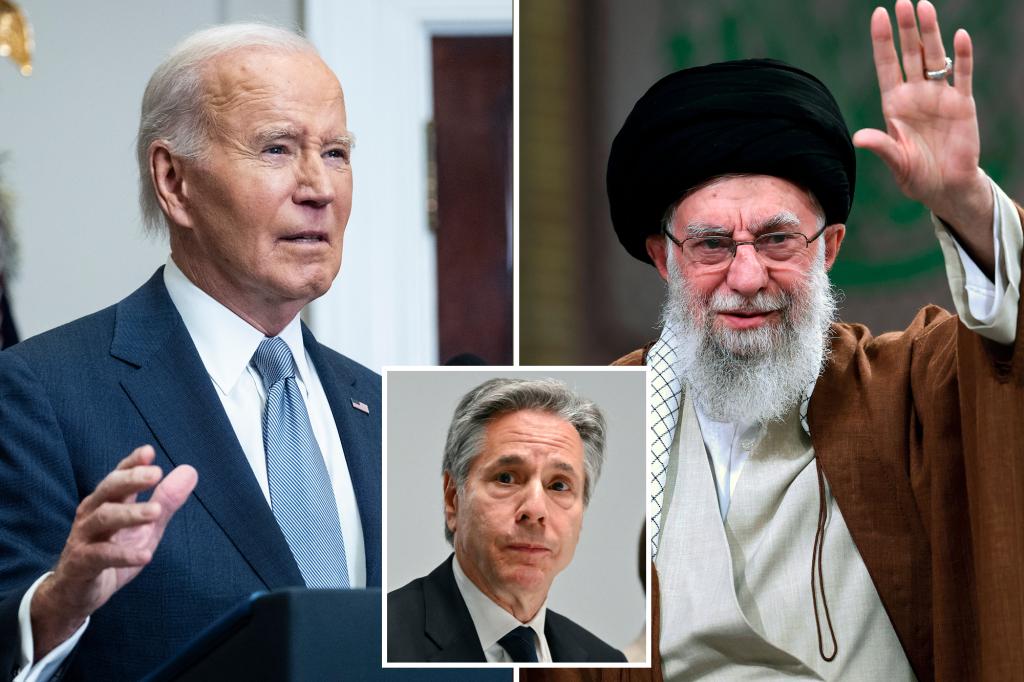The Biden administration’s decision to extend a sanctions waiver for Iran, granting the regime access to approximately $10 billion in Iraqi funds, has sparked controversy and renewed debate over the US approach to Iran. This waiver, initially implemented during the Trump administration, allows Iraq to purchase electricity from Iran while simultaneously sidestepping US sanctions on the Iranian regime. The timing of the renewal, just two days after the 2024 presidential election, and the potential implications for a second Trump term, have amplified the scrutiny surrounding this complex issue. The waiver’s extension through the first few months of a potential second Trump term raises questions about the future of this policy and the broader US strategy towards Iran.
The core of the controversy revolves around the mechanism of the waiver. While ostensibly aimed at facilitating essential electricity imports for Iraq, critics argue that the waiver provides a financial lifeline to Iran, enabling the regime to access funds that could be used to support terrorism, nuclear proliferation, and other destabilizing activities. The process involves Iraqi payments for electricity being held in escrow accounts, with the waiver permitting the transfer of these funds to accounts in Oman. This conversion process, opponents argue, effectively circumvents sanctions by providing Iran access to internationally convertible currency, thereby undermining the efficacy of the sanctions regime.
The extension of this waiver has drawn sharp criticism from Republican lawmakers, particularly House Foreign Affairs Committee Chairman Michael McCaul, who has long argued against providing financial relief to the Iranian regime. McCaul emphasizes the House’s repeated votes to eliminate such waiver authorities, highlighting the congressional opposition to this policy. His criticism centers on the potential misuse of these funds, asserting that the Biden administration’s actions are effectively subsidizing Iranian malign activities, including support for terrorist proxies and development of nuclear weapons. This disagreement underscores the deep partisan divide on US policy towards Iran and the ongoing tension between the executive and legislative branches on this issue.
While the State Department defends the waiver extension by citing its origins during the Trump administration and its necessity for maintaining stability in Iraq, critics remain unconvinced. The State Department’s rationale emphasizes the importance of a stable and secure Iraq to regional security, arguing that ensuring Iraq’s access to electricity contributes to this goal. However, opponents contend that this short-term solution comes at a long-term cost, bolstering a regime that directly threatens regional stability and US interests. The contrasting perspectives highlight the difficult balancing act facing policymakers grappling with the complex dynamics of the Middle East.
Further complicating the issue is the backdrop of the 2024 presidential election and the potential return of Donald Trump to the White House. The timing of the waiver extension, coming just after Trump’s electoral victory, raises questions about the Biden administration’s intentions and the potential for this decision to influence the early days of a second Trump term. It’s crucial to note that the Biden Administration and the Trump Administration’s policy is similar in its renewal of the sanctions waiver. As of yet, there has been no official statement declaring his intention to do so or not to do so.
Given Trump’s previous hardline stance on Iran, including his withdrawal from the Iran nuclear deal, speculation abounds about his likely course of action regarding the sanctions waiver. While some anticipate a swift reversal of the policy, others suggest that pragmatic considerations, including the need for stability in Iraq, might influence his decision. The uncertainty surrounding Trump’s approach to this issue adds another layer of complexity to an already contentious policy debate. The waiver’s future remains uncertain, with its fate intertwined with the evolving political landscape and the ongoing debate over the most effective strategy for dealing with the Iranian regime.










